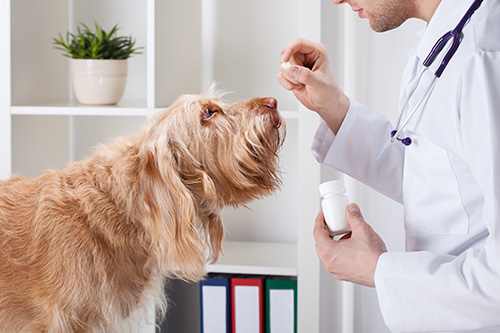
Heartworms are transmitted by mosquito bite, and they can cause serious or fatal disease in dogs and cats, by damaging the heart, lungs and blood vessels. As global temperatures rise, mosquitos are expanding their range and the length of time they are active during the year. One animal infected with heartworms can serve as a reservoir for disease transmission and be a cause of illness for many others.
In dogs, signs of heartworm disease can range from coughing, fatigue, and weight loss to difficulty breathing and a swollen abdomen (caused by fluid accumulation from heart failure). Canine heartworm infection can also lead to a life-threatening complication called “caval syndrome” (a form of liver failure); Without prompt surgical intervention, this condition usually causes death. Treating a heartworm infection in a dog is extremely expensive, and takes many months, during which time the pet must be kept crate-rested and very quiet.
Although often thought to not be susceptible to heartworm infection, cats can indeed get heartworms. Cats can suffer from a syndrome referred to as heartworm-associated respiratory disease (HARD); the symptoms can be subtle and may mimic those of asthma or allergic bronchitis. Signs of respiratory distress, such as rapid or difficult breathing, wheezing, and panting, are common. Other symptoms include coughing, vomiting (typically unrelated to eating), and loss of appetite or weight. Heartworm infection is more difficult to diagnose in cats than it is in dogs, and it only takes one adult heartworm to make a cat ill. There is no approved treatment for heartworms in cats- prevention is the only way to prevent this disease.
Fortunately, by administering monthly heartworm prevention, you can help prevent infection in your pet and protect others. These medications are also beneficial as they help protect your pet against other parasites, such as roundworms, hookworms, whipworms, and ear mites. We can make personalized recommendations for your pet on the best type of preventatives for him or her, but recommend year-round protection in our area.


